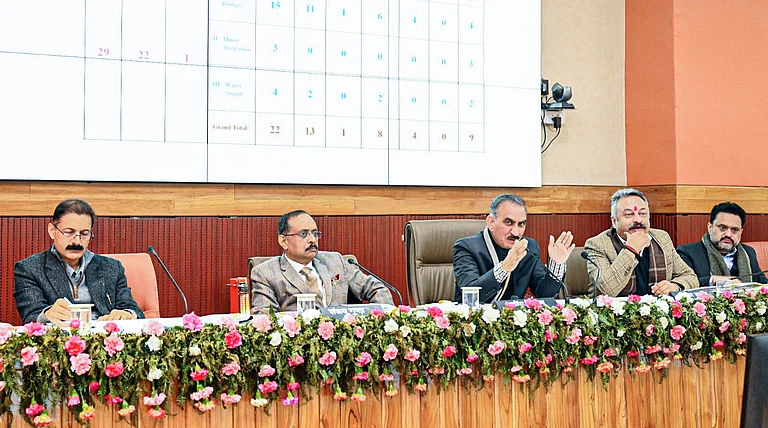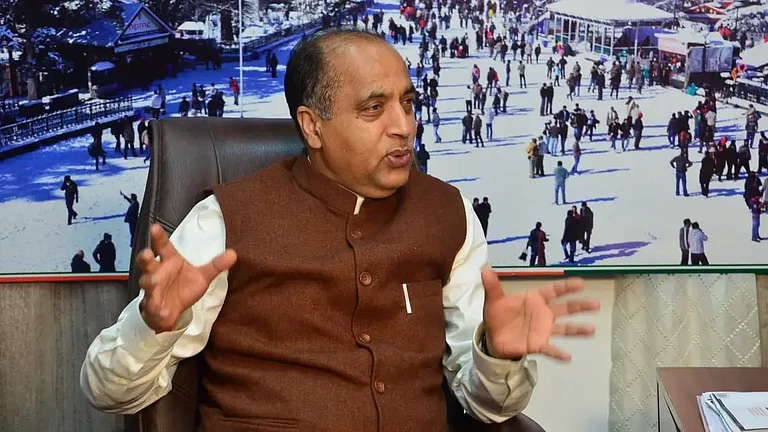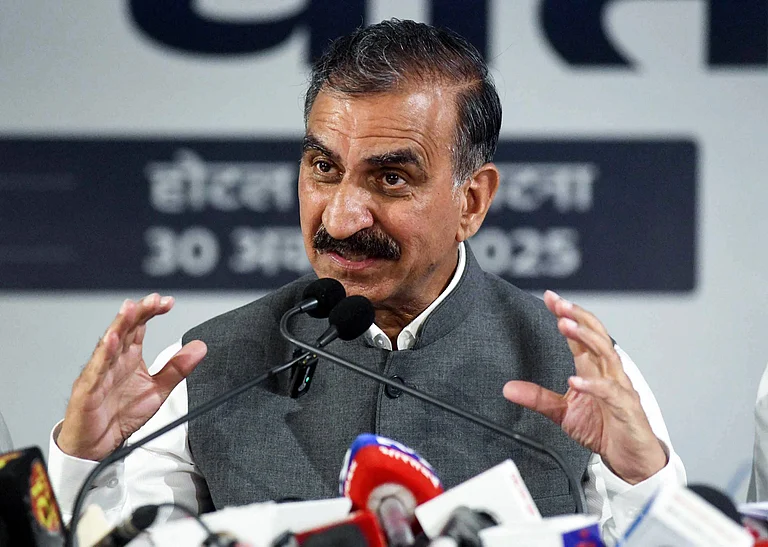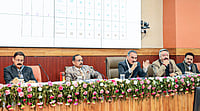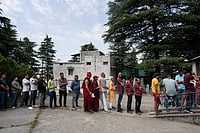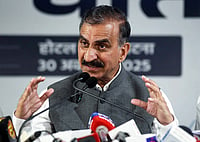In a unique initiative, the Government of Himachal Pradesh has ‘milked’ the earnings from the sale of liquor in the state to boost its revenues and revitalise the state’s dairy sector.
In the Budget 2023-24, Himachal Chief Minister Sukhvinder Singh Sukhu announced the imposition of cess of Rs 10 on every bottle of liquor sold in the state. The move was intended to improve the financial health of the state which was running short of funds and boost the dairy sector — 69 per cent of Himachal’s population is directly dependent on this sector.
Sukhu’s novel idea has borne fruit. Over the past year, the state’s earnings from the sale of liquor jumped by 40 per cent and the government received Rs 90.78 crore from the cess, according to the data tabled in the state Himachal assembly. The highest share of the collection came from Kangra, the state’s biggest district bordering Punjab.
The collection is the highest among the ‘additional resources’ that were to be raised as per Sukhu’s Budget 2023-24, his first after becoming the CM of Himachal.
In an exclusive interview with Outlook, Sukhu said that the collections from the cess would go towards improving the dairy sector’s infrastructure in the state.
“By March 31, our revenue collections from milk cess on liquor will be about Rs 116 crore. I propose to invest the entire money to build modern infrastructure for milk production and raise the income of cattle rearers. This will mark a significant shift towards the rural economy,” said Sukhu, who also holds the finance portfolio.
Himachal Govt Brings MSP For Milk And Natural Farming
In the Himachal Budget 2024-25, which Sukhu presented in the state assembly on February 17, Sukhu set the minimum support price (MSP) for milk. The minimum price of cow milk was raised from Rs 38 to 45 per litre and the minimum price for buffalo milk was raised from Rs 47 to 55 from April 1. The farmers and animal rearers will not only get the cost-based price of the milk produced but also a quality bonus, said Sukhu.
Sukhu told Outlook, “Himachal Pradesh has become the first state in the country to announce MSP for the milk. We will invest more money to attract farmers towards cattle rearing and contribute to the rural economy.”
The government has also announced an MSP of Rs 40 per kg and Rs 30 per kg respectively for naturally-grown wheat and maize — two principal crops cultivated in the state.
“The MSP given by the government will be the highest in the country and expected to motivate unemployed youths to natural farming and also milk production,” says Sukhu.
While Sukhu admits that consumption of liquor is injurious to health, he says the hill state has devised innovative measures to see that it improves the state’s fiscal situation through milk cess collections.
Some of the districts that have posted impressive collections of milk cess are: Kangra with a collection of over 16.53 crore in just 10 months, Shimla with Rs 13.79 crore, Mandi with Rs 9.31 crore, Kullu and Lahaul-Spiti with Rs 9.31 crore, the industrial belt of Baddi with Rs 7.28 crore, and Solan with Rs 6.10 crore.
Himachal’s Finances Riding On Alcohol Revenue’s High
While presenting the budget for 2024-25, Sukhu said the decision to impose Rs 10 per bottle has paid off well in the drive to raise the resources of the state. He said the money will be invested for the benefit of the farmers engaged in cattle rearing.
The excise auctions during the year also witnessed a record 40 per cent hike and a net increase of Rs 515 crore as additional income. The total collections from the excise has been Rs 2,350 crore till January 31, 2024. By the end of the year, the government expects this to increase to Rs 2350.81 crore.
Sukhu has proposed to set up a state-of-the-art automated milk and milk products plant at Dhagwar in the Kangra district of the lower Himachal region. The government has signed a memorandum of understanding (MoU) with the National Dairy Development Board (NDDB) to provide consultancy services for the establishment of the plant.
The proposed milk procurement plant will have an initial capacity of 1.50 lakh litres per day (LLDP) and expandable up to 3 LLPD at the cost of Rs. 225 crore in the first phase. The plant will produce a diverse range of dairy products, such as curd, lassi, butter, ghee, paneer, flavoured milk, khoya, and mozzarella cheese — a value addition to milk production in the state.
The Congress, during the 2022 elections, had promised that if voted to power, it would instruct milk producers to buy cow milk at Rs 80 per litre and buffalo milk at Rs 100 per litre. Anil Kumar, a resident of Palampur who has been running a milk society for the last 29 years, says the decision to order a one-time hike in the procurement price of milk, for the first time in the last 30 years, is a boon to the hundreds of families earning their livelihoods by selling milk.







